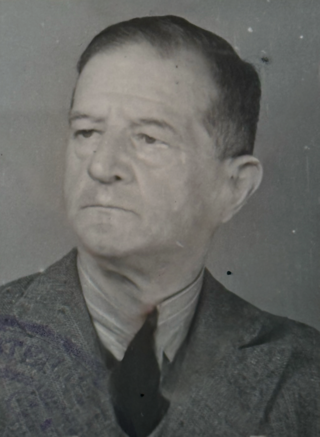Major Alfred Hortwig

Personalia
Born:
Died:
Profession:
KZ Number:
Curriculum Vitae
Alfred Hortwig was born in Przemyśl in Galicia [today: in Poland] as the legitimate son of the imperial and royal captain Anton Hortwig. Captain Anton Hortwig and his wife Carola. It is no longer possible to ascertain whether his parents had already converted from Judaism to Catholicism or whether Alfred Hortwig did so first. After primary and lower secondary school, he transferred to a military secondary school. After graduating from there, he transferred to the Theresian Military Academy in Wiener Neustadt and, after graduating, joined the Imperial and Royal Infantry Regiment No. 4 'Hoch- und Deutschmeister' on August 18, 1909. He was promoted to lieutenant in 1913.
With the outbreak of the First World War, Alfred Hortwig was assigned to the military science department of the Imperial and Royal Army. Army, where he remained until the end of the war. In 1916, he married Hildegard von Boog and went on to father a daughter and two sons.
After the defeat of Austria-Hungary, the dismantling of the Dual Monarchy and the expulsion of the Habsburgs, he disarmed as a major in 1919. He then set up his own business as a sales representative for artificial fertilizers and joined the Vienna Heimatschutz and the Vaterländische Front in 1934. Between 1934 and 1938, he was head of the information service in the general secretariat of the Vaterländische Front. In this role, he vehemently opposed National Socialism and Adolf Hitler's ambitions to occupy Austria.
On March 12, 1938, Alfred Hortwig witnessed the demise of free and independent Austria with the invasion of the German Wehrmacht. With the occupation of Austria, German legislation was adopted and with it the 'Nuremberg Race Laws', according to which Alfred Hortwig was considered a 'full Jew'.
On 22 March 1938, Alfred Hortwig was arrested. Alfred Hortwig was arrested by the Gestapo in his apartment at 2 p.m. on March 22, 1938 and deported to the Dachau concentration camp on April 2, 1938 on the so-called 'Prominent Transport'. From there, he was transferred to the Buchenwald concentration camp on September 23, 1938. After his wife paid him 5,000 RM, he was released on April 29, 1939.
On June 21, 1939, after returning to Vienna, he was once again interrogated by the Gestapo about a political opponent of the National Socialists who was about to be arrested. After he does not reveal this, Alfred Hortwig knows that he must leave Vienna immediately.
That same evening, Alfred Hortwig flees to Sluis in the Netherlands. In June 1940, he moved to Paris. Soon after the occupation of Paris by the German Wehrmacht, he fled to Coimbra in Portugal in September 1940 and from there to England in June 1941.
In England, Alfred Hortwig joined the Pioneer Corps of the Royal Army immediately after his arrival to fight on the British side for a free Austria and against the German occupation of his home country. In the Royal Army, he was given the name 'Albert Hartmann', born in Neuchâtel in Switzerland, so that if he was captured by the German Wehrmacht, he would not be immediately murdered as a deserted Jew.
After my release from prison, I lived mainly on benefits, then emigrated via Holland to Paris in June 39, where I was employed as a clerk in an office for emigrants from IX/39 - approx. 21 June 1940. At this time, the German troops invaded Paris and I traveled via Biarritz/Irun to Portugal and from there to London around Nov/Dec 1940.
During my employment in Paris, which in itself provided me with the bare necessities of life, I also traveled to Hungary for about a week on behalf of the office to make contact with Austrian refugees there,
As a soldier in the Royal Army, Alfred Hortwig witnessed the liberation of Austria and the re-establishment of the Republic. He disarmed there in mid-1945 and finally returned to Vienna in June 1946 to join his family, who remained in his home town.
Places
Residence:
Persecution:
Citations
Wiener Stadt- und Landesarchiv (WStLA)
Österreichisches Staatsarchiv (ÖStA)
Dokumentationsarchiv des österreichischen Widerstands (DÖW)
Friedhöfe Wien - Verstorbenensuche
